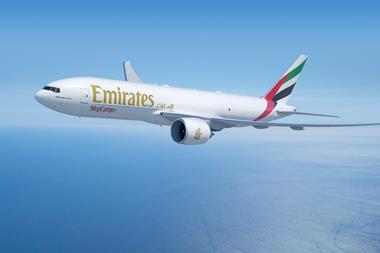On May 9, Logistics UK submitted its response to the UK Department for Transport's (DfT) consultation on night-time noise abatement objectives for the designated airports Gatwick, Heathrow and Stansted.
Within its response, Logistics UK highlighted the importance of night flights to the UK's trade and economy and reiterated its view that no further restrictions on night flights should be imposed.
In 2019, a total of £16.5bn in Gross Value Added (GVA) was produced by night flights across the UK between the hours of 23:00 to 06:59, supporting around 213,200 jobs.
Night flights are crucial for many industries, including air cargo, emergency services and medical transport, which operate on a 24-hour basis to meet consumer demand.
For cargo airlines, particularly those offering express freight services, night flights are essential in achieving next day delivery services – also known as ‘just-in-time' deliveries.
Additionally, long haul flights in the night periods also play a vital role in supporting the short-haul network from UK hub airports as there is high passenger demand for long-haul night flights.
If the government enforced a complete ban on aircraft movements between the hours of 23:00 and 06:59 this could result in a loss of 480,000 tonnes of cargo annually.
Furthermore, there would be limited availability of cargo slots which would increase competition among cargo operators, resulting in increased costs, reduced operational efficiency and reduced customer satisfaction.
Worryingly, there is no mention of economic or trade benefits in the proposed night objectives. However, if the proposed changes are introduced, the aviation industry will experience a downturn in economic productivity, suppressing the growth of the sector.
Logistics UK recognises the concerns of local communities regarding noise pollution and will continue to work with government to find the right balance between reducing the levels of disturbance caused by night flights, and supporting the aviation sector and businesses who depend on them.
The business group is calling on the DfT to make it clear which criteria it will use to evaluate the impact that any limits on night flying has on airfreight connectivity, and the UK economy, prior to making any decisions about future night flight regulations.
If such restrictions are implemented, air cargo operators will have to consider the costs and benefits of complying with the objective and determine whether it is feasible or not to continue operating at the listed airports under the new conditions.
Any night flight policy must promote the government's own objectives of accelerating economic growth and global commerce rather than jeopardising the UK's attractiveness as a location for business.
https://www.aircargonews.net/monthly-exclusive/supply-chain-spotlight-the-future-of-flight/
https://www.aircargonews.net/monthly-exclusive/logistics-uk-sustainability-takes-flight/















